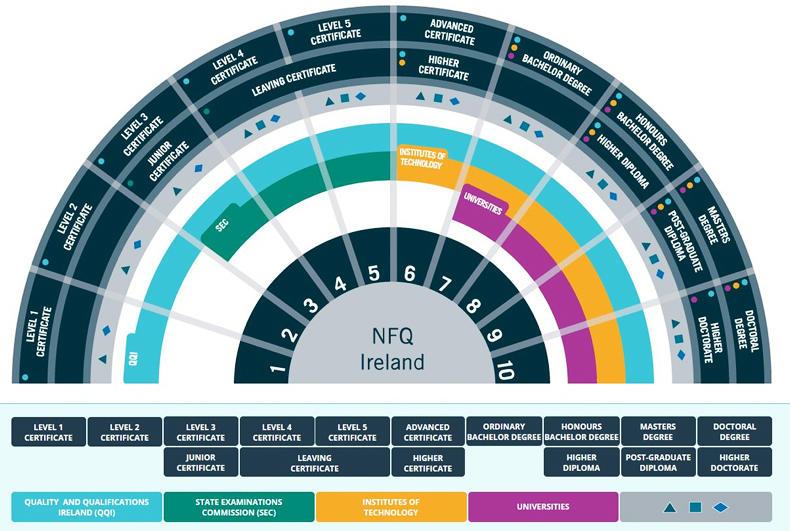When researching your career path; you need to consider what subjects you are good at and what sort of skills you possess. It is also worth taking a look at what career choices will have good employment opportunities when you graduate. This can be hard to predict in such a volatile environment, but if there are jobs you think you would enjoy talk to someone that is currently doing it and see if you can get work experience and ask them what the future looks like.
If part-time farming or living close to home is something you see yourself doing in the future; consider the employers in your area and what sort of skillsets they will be looking for. An increasing number of jobs are in urban centres, but commuting in heavy traffic is not for everyone.
While moving out of home is a key part of the growing-up process, increasing rents mean that this may not always be an option. For those planning to do a course in agriculture, there are so many available now which make it possible to do one close to home.
Not everyone needs to have a Level 8 degree. If you know what you want to do, it is easier to figure out what sort of training is needed for that.
If you don’t know what you want to do, it might be an idea to do a short course in that area to see if you like it. This can provide an interesting education pathway.
For example, you can do your level five green certificate at a Teagasc College and then a Level 6 advanced certificate, specialising in a particular type of production. Students who have successfully completed a Level 6 with a merit at Kildalton College or equivalent can apply to transfer into year two of the BSc in agriculture (Level 7) in Waterford IT, for example.
Then the option of a one-year add-on course gives students with BSc (Level 7) degrees in agriculture, horticulture and forestry the opportunity to obtain an honours (Level 8) degree in their respective disciplines.
It may be a longer route to achieving a Level 8, but you do not have to commit to four years at the start. There are plenty of opportunities along the way to get work experience at home or abroad and you can opt at any stage to go into full-time employment.
Students may be surprised to learn that there are 10 levels of formally recognised qualifications in Ireland (see picture). The Leaving Certificate is a Level 5 certificate and is the highest qualification you can get through the State Examinations Commission. Institutes of Technology and Universities offer courses that can take you all the way to level 10 which would be a “doctorate”.
Level 5
Level 5 certificates in agriculture are available through Teagasc Colleges.
However, these are not applied for through the CAO. Points are not considered for this option. Instead, students simply need to sumit an application form.
Some colleges may call applicants for an interview. Graduates from this course can go straight into working on a farm. Or you can use this course as a springboard to other courses.
If you achieved a merit or distinction you can progress to a Level 6 higher certificate in agriculture which is recommended as it meets the “young trained farmer” requirements for stamp duty exemption and stock relief.

National Framework Qualifications Ireland.
When researching your career path; you need to consider what subjects you are good at and what sort of skills you possess. It is also worth taking a look at what career choices will have good employment opportunities when you graduate. This can be hard to predict in such a volatile environment, but if there are jobs you think you would enjoy talk to someone that is currently doing it and see if you can get work experience and ask them what the future looks like.
If part-time farming or living close to home is something you see yourself doing in the future; consider the employers in your area and what sort of skillsets they will be looking for. An increasing number of jobs are in urban centres, but commuting in heavy traffic is not for everyone.
While moving out of home is a key part of the growing-up process, increasing rents mean that this may not always be an option. For those planning to do a course in agriculture, there are so many available now which make it possible to do one close to home.
Not everyone needs to have a Level 8 degree. If you know what you want to do, it is easier to figure out what sort of training is needed for that.
If you don’t know what you want to do, it might be an idea to do a short course in that area to see if you like it. This can provide an interesting education pathway.
For example, you can do your level five green certificate at a Teagasc College and then a Level 6 advanced certificate, specialising in a particular type of production. Students who have successfully completed a Level 6 with a merit at Kildalton College or equivalent can apply to transfer into year two of the BSc in agriculture (Level 7) in Waterford IT, for example.
Then the option of a one-year add-on course gives students with BSc (Level 7) degrees in agriculture, horticulture and forestry the opportunity to obtain an honours (Level 8) degree in their respective disciplines.
It may be a longer route to achieving a Level 8, but you do not have to commit to four years at the start. There are plenty of opportunities along the way to get work experience at home or abroad and you can opt at any stage to go into full-time employment.
Students may be surprised to learn that there are 10 levels of formally recognised qualifications in Ireland (see picture). The Leaving Certificate is a Level 5 certificate and is the highest qualification you can get through the State Examinations Commission. Institutes of Technology and Universities offer courses that can take you all the way to level 10 which would be a “doctorate”.
Level 5
Level 5 certificates in agriculture are available through Teagasc Colleges.
However, these are not applied for through the CAO. Points are not considered for this option. Instead, students simply need to sumit an application form.
Some colleges may call applicants for an interview. Graduates from this course can go straight into working on a farm. Or you can use this course as a springboard to other courses.
If you achieved a merit or distinction you can progress to a Level 6 higher certificate in agriculture which is recommended as it meets the “young trained farmer” requirements for stamp duty exemption and stock relief.

National Framework Qualifications Ireland.







 This is a subscriber-only article
This is a subscriber-only article










SHARING OPTIONS: